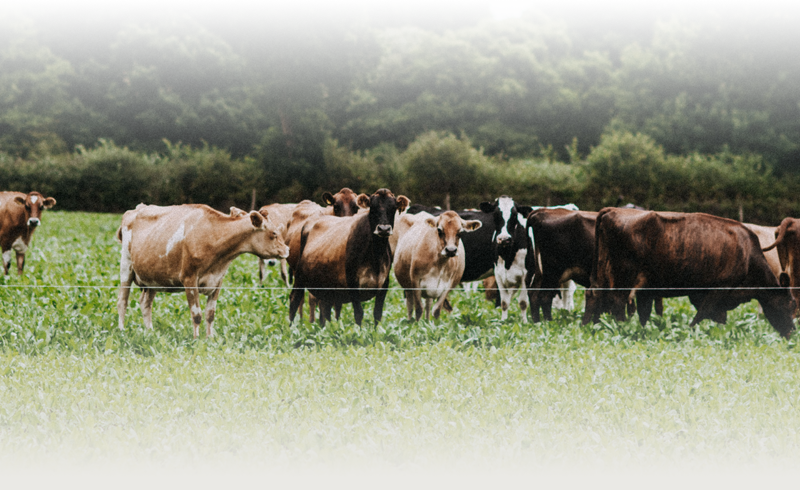Cows And The Environment
Taw River Dairy has always been about the cows and the environment. We believe farming should work with the environment and not against it. We farm as naturally as possible and keep any animal medicine usage to a minimum and only when absolutely necessary, no antibiotics are used here on our farm in Devon. Holistic grazing techniques help to build soil structure and organic matter, we even have our own bees help to pollinate our meadows. Low food miles and reduced carbon emissions are just a couple of the benefits of not buying in feed for the farm, as some concentrated feeds are made up of cereals imported from all over the world.

Happy Cows For Quality Milk
Allowing all our cows to rear their own calves is fundamental to our holistic beliefs. Due to our natural system the cows are only milked once a day, and we only take the milk remaining once the calves have had their breakfast.
A completely grass fed diet not only keeps our cows happy, but also produces better quality milk for you. Their rich diet produces the best tasting, golden cream topped Jersey milk with glorious high protein levels in every bottle.

Free Range Jersey Cows
Our ‘free range’ Jersey cows spend most of the year grazing out on our lush paddocks, right in the heart of the Devon countryside. In the winter when its just too wet and cold, the cows are housed and fed silage (pickled grass) and hay (dried grass), this protects the cows and our precious paddocks. It’s sustainable, natural farming that produces great tasting milk you can compare to nothing else.

Why Pasture Fed?
A number of studies have found pasture fed cows milk to have higher levels of desirable omega 3, vitamin E, antioxidants and lower levels of undesirable omega 6. In-fact grass fed cows milk contains double the omega 3 fat than conventional milk, omega 3 reduces inflammation in the body and is said to reduce the risk of heart disease, stroke and type 2 diabetes. Also in our milk there are higher levels of conjugated linoleic acid (CLA) which is linked in the reduction of colorectal and breast cancers, diabetes and heart disease.





